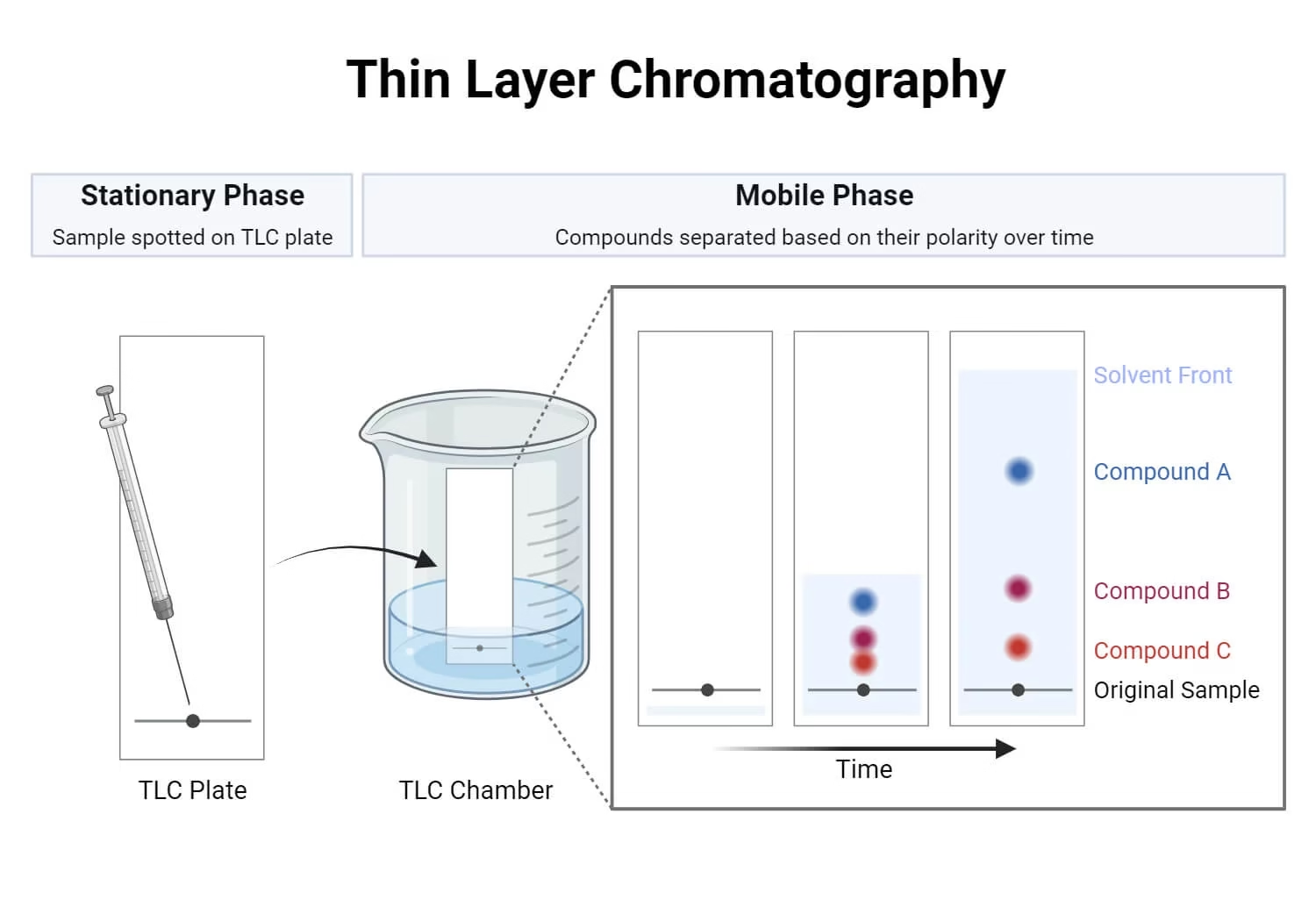Thin Layer Chromatography (TLC) – Principle, Steps, Applications, Advantages & Limitations
Thin Layer Chromatography (TLC) is a simple, quick, and effective technique used to separate and identify the components of a mixture. It is performed on a plate coated with a thin layer of adsorbent material (e.g., silica gel, alumina, or cellulose) which acts as the stationary phase.

